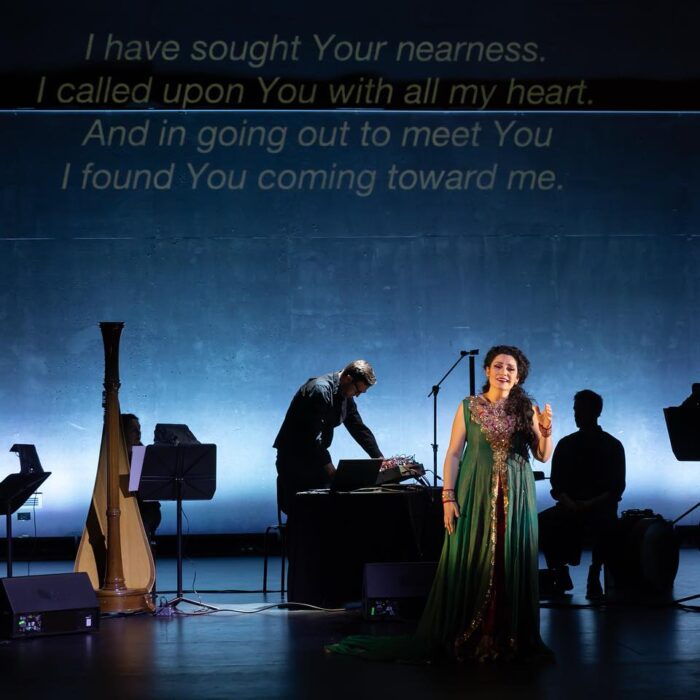
Baritone Tito Gobbi’s 5 Greatest Recordings
By David SalazarTito Gobbi is arguably one of the greatest, if not the greatest baritone of the 20th century.
Born on Oct. 24, 1913, his career really took off after the second World War with the singer performing all around the world in a wide range of great Italian repertoire. He not only sang with a gorgeous baritone sound that featured tremendous technical control but also infused his interpretations with acute and ever-insightful characterizations. There is perhaps no greater baritone in the history of opera so adept at melding beautiful singing and brilliant characterization.
Gobbi’s greatness allowed him to also take on a career in film and then as a stage director where he was able to showcase his intricate approach in a new way.
Fortunately, Gobbi’s legacy exists on records for all to hear. Here is are the best recordings of a legendary artist.
Tosca
Let’s start with the most famous of all of Gobbi’s recordings. His work with Maria Callas and Giuseppe Di Stefano is among the greatest ever committed to disc and many consider this recording to be the greatest of any opera. From his first entrance to his death at the hands of Callas’ intense diva, we grow to hate Gobbi more and more. His voice takes on an “uglier” tone that mixes quite well with his grotesque interpretation of the villainous Scarpia. You can listen to the entire interpretation below:
Otello
In his recording with Leonie Rysanek and Jon Vickers, under Tullio Serafin, Gobbi is the consummate master of deception as the evil Iago. Unlike his Scarpia, where he is a brute monster from start to finish, here he is cunning and devious, his voice sometimes quite beautiful, Gobbi letting it float into a delicate falsetto. His repetitions of “Il Fazzoletto” can become increasingly irritating when interpreted in this way, and yet one can’t help but feel the confusion this might cause for Vickers’ Otello, the innocence of the sound too much to ignore. But he turns his voice into a destructive weapon during the Credo with tremendous swaths of sound.
Rigoletto
Gobbi’s Rigoletto initiates the recording with Callas and Di Stefano as a grotesque man, who one can’t help but revile. And yet, he softens right from the start of that second scene, his “Parisiamo” extremely introspective as Gobbi used pauses quite wonderfully for stirring dramatic effect. And then when asked to be a father he is perhaps at his finest in scenes with Callas. The opening phrase that launches their first duet, sung with a rather slow tempo, draws “Moria! Moria!” making the effect all the more brutal than I have ever heard it. Then in that second duet, his “Piangi!” are just as delicate in their approach and we can truly sense the tenderness and devotion he has to his daughter. It all makes the “Vendetta” duet all the more striking, particular as Gobbi is at his most aggressive vocally, the tempo speeding up throughout until he and Callas deliver two incredibly climactic high notes. The level of detail in this recording is so fascinating from the baritone and might, in my opinion, be his single greatest interpretation on disc.
Falstaff
As we continue the path from evil to benevolence, Gobbi’s recording of “Falstaff” under Herbert Von Karajan is just a ton of fun (not to mention loaded with star power). Gobbi’s Falstaff, far from a bumbling idiot, has nobility but we always sense that he just loves to enjoy life. There is a brightness in Gobbi’s singing that isn’t present in any of the other aforementioned recordings here (or any others of his for that matter). He just makes you smile every time he opens his mouth.
Simon Boccanegra
Is Simon Boccanegra the ultimate good guy in Verdi? Probably not, but he might be the most fully realized hero in the entire canon. He is a man filled with flaws, making the wrong decisions for the right and wrong reasons all the same. He is a loving father, a warrior, a leader, a politician, and a suffering lover. We get all those dimensions in Gobbi’s famous recording, which also features brother-in-law Boris Christoff a Fiesco, and soprano Victoria de Los Angeles.
Did we miss any of your favorites? Let us know in the comments below!


